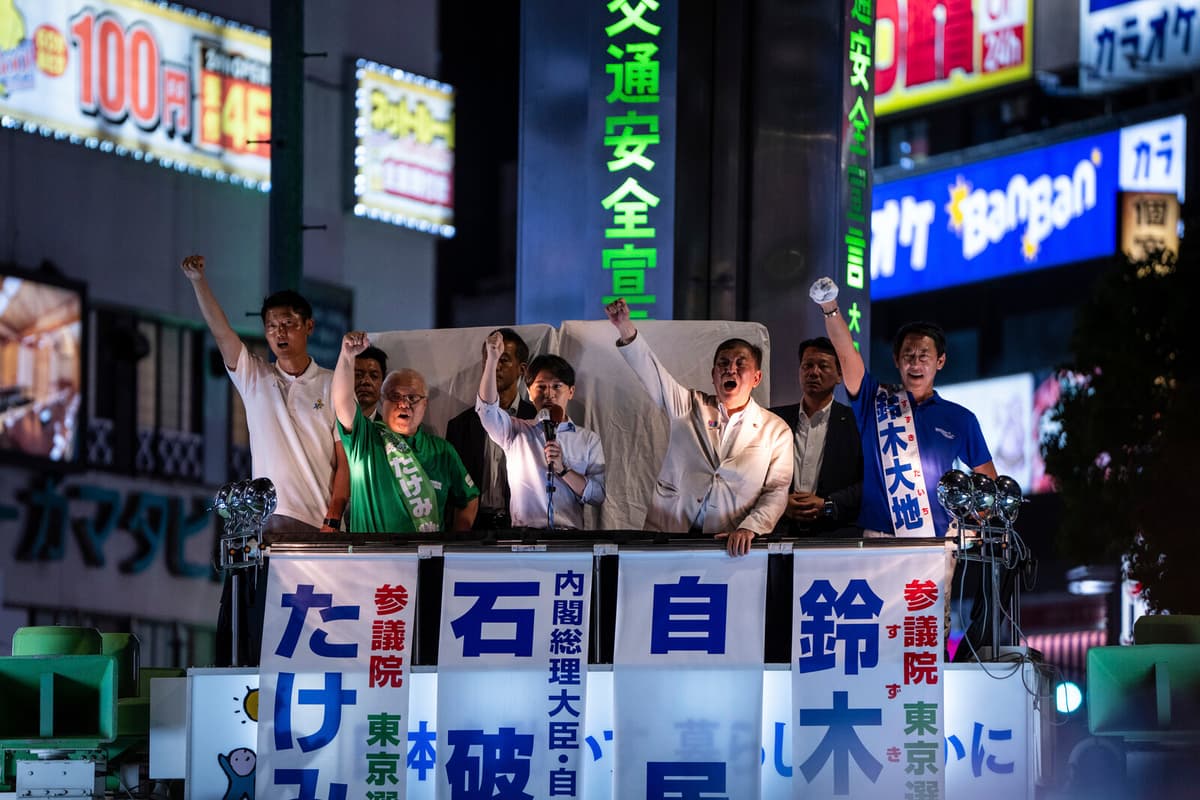Japan's Prime Minister Ishiba and his government coalition have lost their majority in the upper house, which risks increasing the political instability in the country.
Japan is ruled by Ishiba, his Liberal Democratic Party (LDP) and the conservative coalition partner New Komeito Party. It is the first time in LDP's 70-year history that the party leads a coalition that does not control either the lower house or the upper house.
Rising rice prices
The Japanese upper house consists of a total of 248 seats. Ishiba's coalition lost its majority in the election to the Japanese lower house in October.
The government has not managed to deliver solutions to problems such as rising prices for, among other things, Japan's traditional staple food rice, and wages that are lagging behind. In addition, the government is plagued by the aftermath of corruption scandals. Trade tariffs of 25 percent from US President Donald Trump, which come into effect on August 1, also exacerbate the situation.
Frustrated voters
The opposition party CDP has gained ground. Frustrated voters are also turning to rapidly growing populist parties. Above all, the right-wing populist Sanseito has had successes, with a policy that revolves around tougher measures against immigrants, and traditional gender roles.
A poor election result for LDP will not lead to an immediate change of government, but is expected to lead to demands within the party for Ishiba to resign or seek a new coalition partner.






